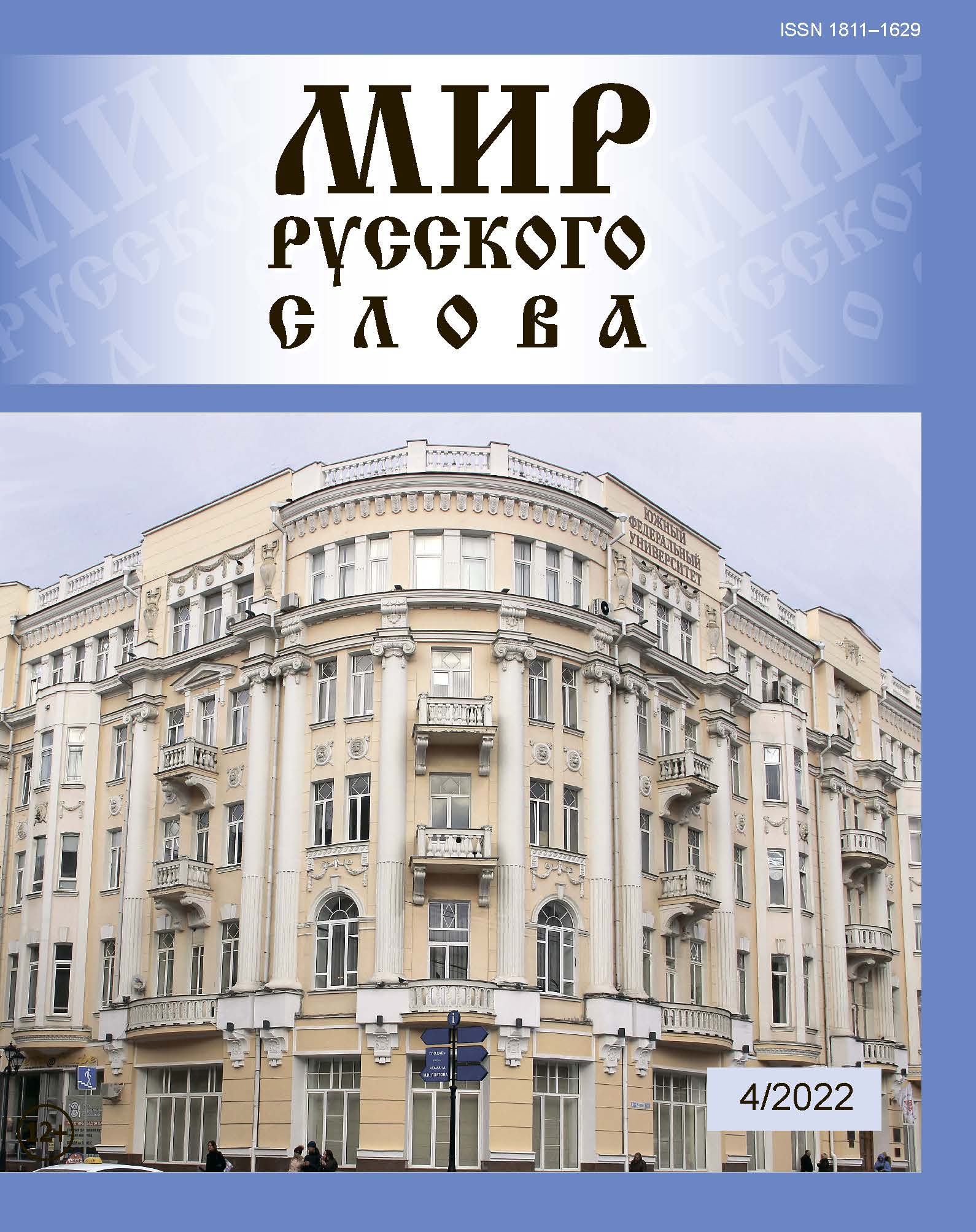Considering “constants of culture” in the context of cognitive-pragmatic programs theory. A theoretical study
DOI:
https://doi.org/10.24412/1811-1629-2022-4-4-13Abstract
Th e article deals with the constants of culture, considered from a theoretical point of view
as the topical subject of research. Th is study, based on the achievements of linguoculturology,
cognitive linguistics and other modern humanities is carried out within the framework of the author's metadisciplinary theory of cognitive-pragmatic programs
(CPP), which makes it possible to carry out both a systemic
and component analysis of the universal triad “language —
personality — culture.” Th is triad is a complex of “backbone”
constants. Th e author of the article transforms the traditional
idea of the cultural concept as a constant of culture. Th e status
of the concept-constant changes: from the point of view of the
CPP theory it appears as a “program code”, i. e. a concept that
has undergone categorization and functional concretization
(codifi ed), which opens up wide possibilities for scholarly correct
analysis. Th e author determines three main types of codifi ed
program constants: a system of genetic codifi ed constants
(norms, traditions, beliefs, customs, etc.); a system of culturally
codifi ed constants proper; personalized cognitive-mental
codifi ed constants. All of them undergo mandatory cognitivemental indexing: a) target; b) self-identifi cation; c) instrumentaloperational; d) evaluative and eff ective. Th ree zones of the
universal content of the codifi ed constant can be distinguished:
subjective-personal (the self-identifying index of the constant is
the universal “who”); activity-target (target and instrumentaloperational indexes of the constant — universal “why” + universal
“how”); summarizing-analytical (meta-index) (evaluative-eff ective
index of a constant — a universal “what”). In the space of the third
zone, an integrated dynamic image of the universal semantic core
of the codifi ed constant appears. Th e general abstract model of the
universal content of the codifi ed constant is as follows: universal
“why” + universal “who” + universal “how” = universal “WHAT”.
Th e nature of the constants’ interaction within the program can
be both constructive and destructive. In general, the CPP can be
considered as a system of codifi ed constants of diff erent types
interacting with each other.
Keywords:
cognitive-pragmatic program (CPP), concept, culture constant, categorization, cognitive-mental indexing, metanarrative program
Downloads
Downloads
Published
How to Cite
Issue
Section
License
Articles of "The World of Russian Word" are open access distributed under the terms of the License Agreement with Saint Petersburg State University, which permits to the authors unrestricted distribution and self-archiving free of charge.




